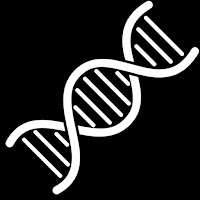Definition
Embryonic stem cell is defined as a cell capable of dividing into all types of cells needed to make a whole organism. These cells are also known as our body's raw materials. These are derived from inner mass of human embryos at the stage of blastocyst. It is a embryonic stage when embryo is only four to five days old after mating with sperm. At this stage, embryo is like a tiny dot on this "i" and only contain 150 cells.
Characteristics
The major characteristic of embryonic stem cell is pluripotency. The capability of a embryonic stem cell to divide into its own copies or into all specific types of body cells is known as pluripotency.
Under suitable conditions in body or even in laboratory, these cells can divide into more stem cells or into more than 200 types of our body cells like heart cells, brain cells, blood cells, bone cells etc. These cells have unlimited regenerative powers.
Uses/Applications of Embryonic stem cells:
- Investigating disease development
Researchers and doctors may understand the developmental procedures of various diseases by watching their influence on stem cells growing in laboratories.
- Regenerative medicines
Embryonic stem cells can be used to generate healthy cells to replace damaged diseased cells. These can be applicable on people with spinal cord injuries, type 1 diabetes, Parkinson's disease, amyotrophic lateral sclerosis, Alzheimer's disease, heart disease, stroke, burns, cancer and osteoarthritis.
- Safe Drug testing
Instead of risking people to test drugs, embryonic stem cells can be used to test dangerous drugs safely in laboratories. By using embryonic stem cells, nerve cells could be generated to test a new drug for a nerve disease. Tests could show whether the new drug had any effect on the cells and whether the cells were harmed.
Embryonic stem cell ethical issues
Human embryonic stem cell research is ethically controversial because it involves the destruction of human embryos during the extraction of embryonic stem cell lines from inner mass of embryo. According to some people, embryo has rights and must be respected. From this perspective, taking a blastocyst and removing the inner cell mass to derive an embryonic stem cell line is not good. Many other people have a different view for the moral status of the embryo. Governments have maded some strict rules to use these embryonic stem cells in the research work.
Future aspects of embryonic stem cell
Stem cell-based therapies are viewed as among the most promising new strategies against developmental, traumatic, oncogenic and degenerative diseases. Indeed, it was the ability to identify, isolate, culture, interrogate, expand and transplant stem cells and/or their derivatives that gave rise to the new field of ‘regenerative medicine’. While the hope for stem cell-based regenerative medicine grows rapidly, it is becoming clear from extant clinical trials that we still need a greater understanding of the fundamentals of stem cell biology as well as of the disease process in order to make an impact that is efficient, efficacious, safe, reliable, scalable, cost-effective, practical, accessible and affordable.




